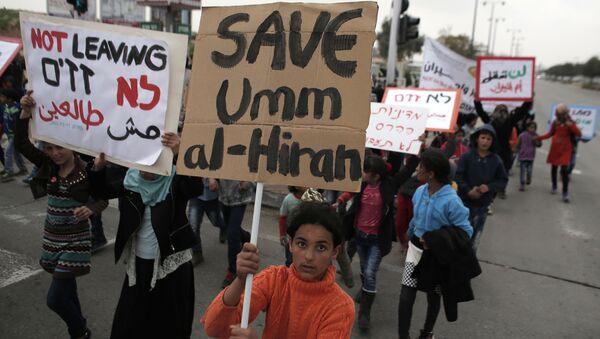"The forcible eviction of Bedouin residents to make way for a new Jewish town would be a blatant and ugly episode of discrimination mirroring Israel’s unlawful settlements… Long after most of the rest of the world has such rejected racist policies, the Israeli government keeps building and razing communities on the basis of religion and ethnicity," Human Rights Watch (HRW) Middle East Director Sarah Leah Whitson was quoted as saying in a HRW statement.
HRW stressed that Israel was bound by the International Covenant on Economic, Social and Cultural Rights (ICESCR) to ensure adequate consultations, provide appropriate compensation and demonstrate a clear public interest of evictions before approving such moves.
The village was settled by the current Bedouin community in 1956 after being evicted by Israeli forces from their land over 10 years before then. The village is considered illegal by Israeli authorities as no legal title was given during the settlement. Planning authorities are set on building a new Jewish town of Hiran on the site. Residents were offered plots of land in a nearby town as compensation.
Israel's Negev Bedouin population is estimated at around 200,000. Most of these were expelled to the West Bank and the Gaza Strip after the 1948 Arab-Israeli conflict. Around 40 unrecognized Bedouin villages currently exist in Israel.
Over 500,000 Jewish settlers live in the West Bank, including East Jerusalem, according to United Nations figures. The settlements are considered illegal by the United Nations, and West Bank territory is considered occupied territory by the International Court of Justice. The West Bank has been occupied by Israel since 1967.



